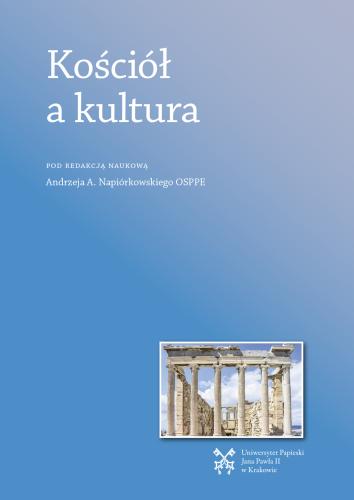Christian culture and secular culture in the light of (post)conciliar ecclesiology. Their unity in difference
Synopsis
The Second Vatican Council and subsequent post-conciliar theology introduced significant changes not only in the understanding of the Church itself, but also in its attitude toward the outside world. The starting point of the reflection is to show the formation of the Church, which includes five stages of the continuous formation of a community of disciples of Jesus Christ. Each of these ecclesiastical stages remains in a different relation to the non-religious environment, which also has its achievements and enjoys its own autonomy. The article „Christian and secular culture in the light of (post)conciliar ecclesiology. Their Unity in Dissimilarity” is an attempt to demonstrate the necessity and inalienability of the dialogue between the Church and the world, which is to be carried out especially in the space of culture. Both the Church and the world need culture for their existence and further development. Both entities also produce culture. Throughout its history, the ecclesial community of the Triune God remains in tension with the world around it. On the one hand: Christians and the world around them have many points in common in their mutual service to every human being and all of creation, and on the other: Christianity in its uniqueness remains absolutely and completely different, from what the world is with its secular culture.



